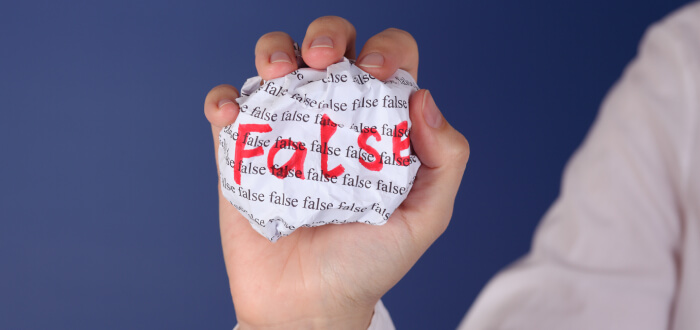In today’s overly connected world, it does not take long for information to spread from one person to the next. Within moments, a post on social media can be seen by dozens, if not hundreds, of people. And if the post goes viral, it can reach hundreds of thousands of people or more within a matter of days.
This phenomenon can be a benefit and a detriment to your business. A good review that spreads quickly can generate new sales and new customers. However, bad reviews and misinformation can drive potential customers away. Unscrupulous companies know this and may release false or defamatory information about your business as a result.
Fortunately, you are not without options when this happens. To mitigate the harm this false information can cause, it’s important to take action as quickly as possible. Here is what you need to know about defending your company against slander.
Defining Slander and False Advertisements
To effectively combat slander, libel, and false advertisements, it is helpful to first understand what they are in legal terms.
A false advertisement is a false claim a competitor puts out about a product or service, usually to distinguish it from your own. For instance, a competitor that claims its computer processor is faster and more efficient than yours may constitute false advertising if there is no proof the claim is true.
Slander is a false and defamatory oral statement made about you or your business. Unlike a false advertisement, which simply communicates an untruth about your products, services, or business, slander is aimed more at your personal reputation. A slanderous statement could be that you embezzled money from previous employers.
Libel is simply a slanderous or defamatory statement that is made in writing. Printing the above information in the local newspaper would constitute libel. It would also be liable if your competitor produced an online advertisement claiming your product was manufactured with a dangerous chemical.
What You Can Do About False Advertisements and Defamatory Statements
You might have the legal right to bring lawsuits against competitors that engage in false advertising or that make defamatory statements against you and your business. This right is not absolute, as some practices cannot form the basis of a lawsuit.
For example, courts have held that businesses can engage in puffery without engaging in false advertising. Saying a product is the fastest or best product is an example of puffery.
When it comes to libel and slander, you may be entitled to recover damages and prevent your competitor from making similar statements about you. To prevail, you must show that the competitor made a demonstrably false statement of fact to a third party that caused you or your business to lose esteem in the eyes of others.
It’s vital to take action quickly when you learn of defamatory statements or false advertising. Claims for damages resulting from defamatory statements must be brought within one year of the date the defamatory statement was made and communicated to another.
Protect Your Rights With a Nassau County Personal Injury Lawyer
The laws surrounding defamation and false advertising in New York are complex. That is why speaking to a Long Island personal injury attorney is key. A lawyer working on behalf of your business can gather evidence to demonstrate the falsehood of the competitor’s statement and the harm your business sustained.
Show a competitor willing to make false statements that you will not stand idly by while your reputation and that of your business are unfairly tarnished. A strong and effective response that results in real consequences can help protect your business’s reputation and encourage other competitors to think twice before making false statements.
Contact Kohan Law Group to schedule a consultation with a seasoned Nassau County personal injury attorney today.
The information provided in this blog post is for educational purposes only and is not intended to constitute legal advice. It is essential to consult with a qualified attorney regarding your specific situation and circumstances.

